Lost Boys & Fairies: Representation at last
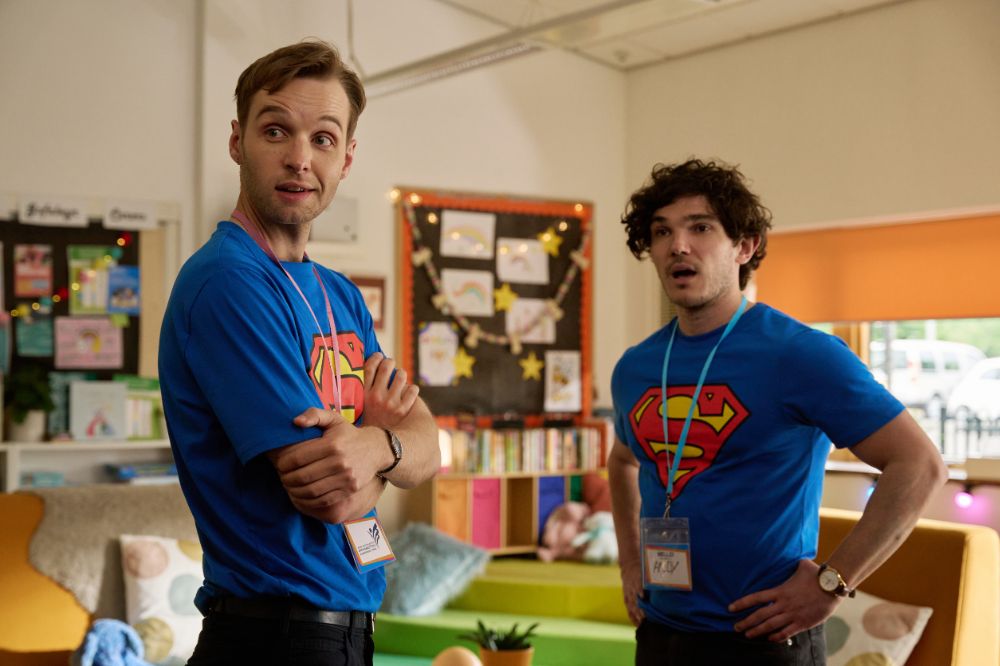
Adam Pearce
As a Welsh speaker I have often found it difficult to love a lot of English-language films and television programs about Wales and the Welsh, even the ones made in Wales.
If my language features at all, it will typically be as a kind of mystical, esoteric oddity spoken by druids, hermits or maybe farmers (The Way), and at worst as a joke/stereotype about stubborn nationalists (the only Welsh speaker in Gavin and Stacey refuses to speak English even when nobody understands him. Oh, and he’s clearly a criminal).

More often than not though, programs about Wales seem to be set in a version of Wales where Cymraeg doesn’t exist at all, such as the 2014 film Pride, and Keeping Faith (despite the latter being a translation of a Welsh program).
Filmed largely in Wales since it’s revival in 2005, Doctor Who and it’s spinoff Torchwood have had dozens of episodes ostensibly set in Wales, but the Welsh language has barely featured in any of them, if at all.
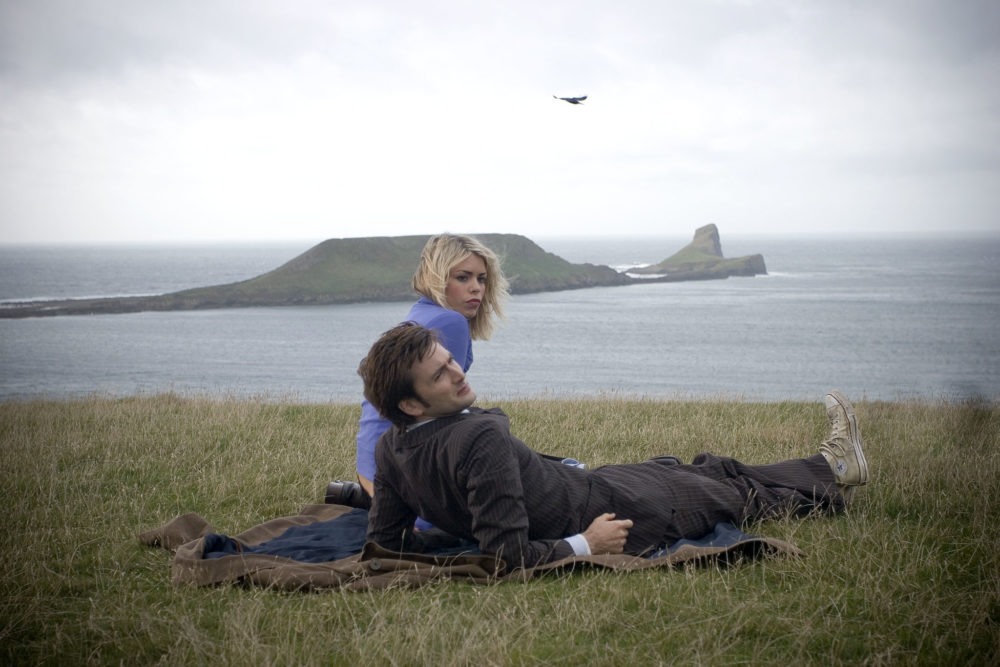
As for the way the Welsh appear in programming not set in Wales, you can be certain they will absolutely never be heard speaking a word of Cymraeg even when the characters are supposed to be from majority Welsh speaking areas and/or are portrayed by Welsh speaking actors in their normal accents.
When Welsh people living in London in shows like Call the Midwife and It’s a Sin write home, it’s never in Welsh.
Even when the characters on screen are supposed to be real people who speak Welsh, they won’t be portrayed speaking Welsh: think Noel Thomas in Mr. Bates and the Post Office and Siân James in Pride.
As an exception that proves the rule, when academic E. G. Millward was portrayed, by Mark Lewis Jones, speaking Welsh with his family in Netflix series The Crown it made waves, because of just how unusual it was.

To be clear: some of these are still great programs. Of course we have S4C, but programs there have a totally different role and purpose, and can hardly be considered to be part of the UK media mainstream.
For Welsh to be confined only to our Welsh-only spaces—crucial as it is to preserve them—is like saying that the LGBTQ+ community have gay bars, so shouldn’t be allowed anywhere else.
I’m not saying that every Welsh character should speak Cymraeg, nor that we can’t or shouldn’t make stories about Wales that don’t feature the language. Four fifths of the Welsh population don’t speak Welsh.
But one fifth do. And how often do you ever hear Welsh on any mainstream media?
The reality is we are almost completely invisible, even in an age of colour-blind casting, Bridgerton and widespread acknowledgement that representation matters.
And even if you don’t think representation for it’s own sake is important, there’s a simple question about accuracy and authenticity here.
Newcomers to Wales (and even some people who’ve lived here forever) are often surprised by the strength and vitality of the Welsh language, but why wouldn’t they be surprised?
The completely Anglophone version of Wales they’ve been fed by the media doesn’t actually exist, and never has.
It’s there in the news as well – for all that Derek Brockway might wish us a noswaith dda, how many interviews must get filmed twice in each language lest, god forbid, a person be heard speaking Welsh on the English news?
It’s as if Welsh must be, as parenting guides used to say of children, “Seen, not heard.”
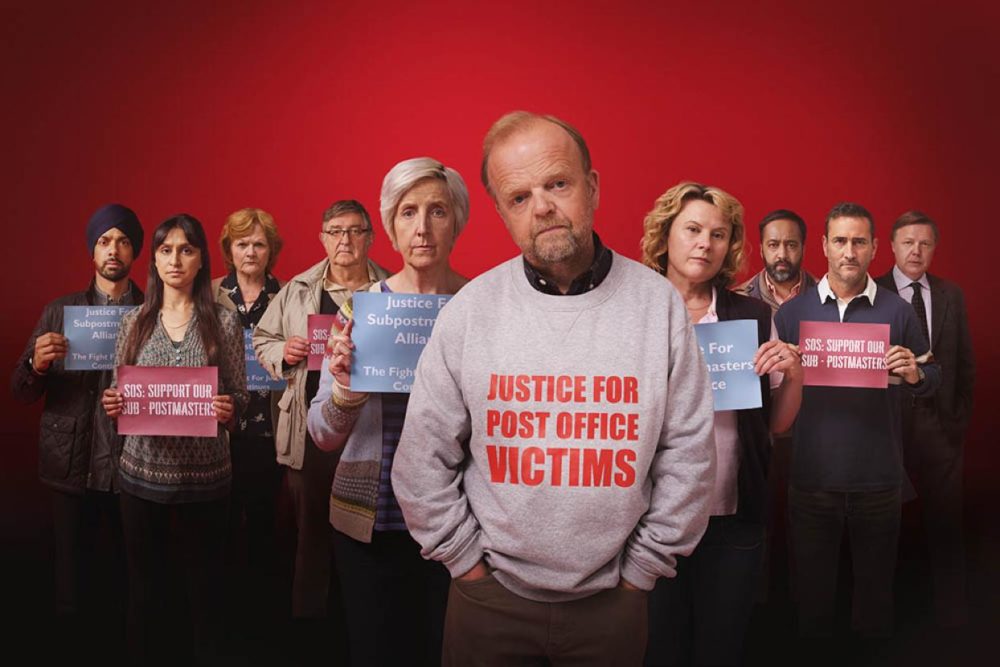
Maybe they fear a negative backlash, such as happened the one time Countryfile (to their credit) actually let people speak Welsh on the program.
Mr. Bates Versus the Post Office didn’t even get the “seen” bit right: scenes set in what was meant to be a post office in Llandudno didn’t feature a single word of Welsh on a sign or poster.
Presumably this was either because someone thought that seeing Welsh would somehow confuse or alienate audiences, or probably more likely because nobody thought anything about it at all. Not sure which is more depressing.
The aforementioned film Pride is in many ways the worst culprit of the lot, firstly because it chronicles real Welsh history in a real Welsh community with real people who speak Welsh, and secondly because as a story it is very overtly celebrating diversity in one sense.
Yet, at the same time it manages to do so without the slightest hint that anyone in Wales might, you know, be different like that.
Like many, I love seeing Welsh history portrayed in successful, high quality films and TV programs; but not if that means erasing the most distinctive and interesting thing about Wales and Welshness, the very reason why Wales exists in the first place.
When this kind of erasure happens to people of colour it’s called “whitewashing” – what is it when it’s Cymraeg? Saes-washing?
Whatever we call it, it contributes to false narrative that “nobody round here speaks Welsh”, or, as Cardiff Council’s then-leader Phil Bale once put it, that the language “isn’t a part of the social fabric” of our cities (I can only assume he meant a different Cardiff to the one I know).
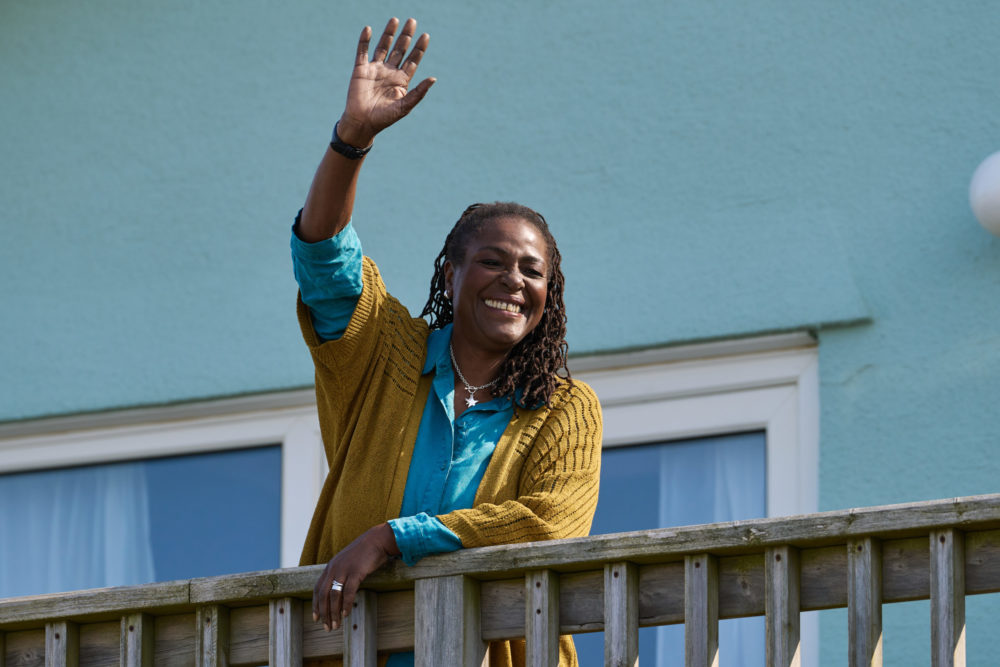
In a way we shouldn’t be surprised to see Saes-washing even in stories about Diversity, because the Anglo-American model of Diversity & Inclusion has never really had much room or understanding for linguistic diversity.
This is partly because it’s never something the Anglophone mindset has needed to accommodate—there has never been a Language Rights struggle on a major scale across the English-speaking world in the way there have been for women, race and sexual minorities.
But this is also because, unlike with these other groups, accepting Linguistic diversity comes at a (small) cost to the majority group, because it means accepting that there will sometimes be conversations you won’t understand, culture you can’t access, books you can’t read, events you can’t join in, without making that personal investment of learning the language yourself.
Too crude an understanding of “Inclusion” is dangerous for minority languages because that’s what leads to the very people who think they’re championing Inclusion so often to end up attacking them.
Diversity and Inclusion for all, seems to be the message—as long as you talk like us.
Which, when you think about it, is not really Diversity at all, is it?
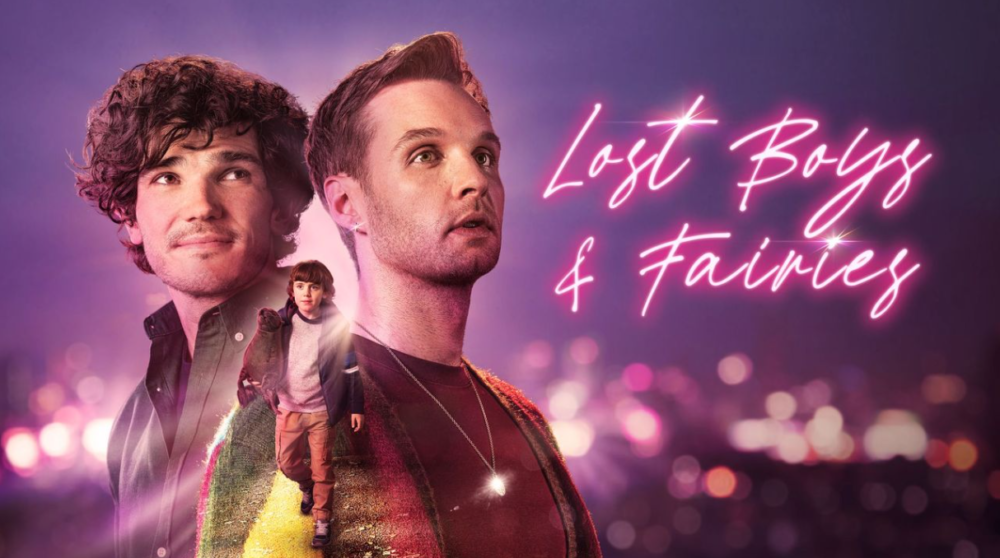
In this context It’s hard to describe how absolutely brilliant it was to watch the recent BBC One drama Lost Boys & Fairies, created by Daf Jones.
Finally, an English-language program that portrays a version of Wales that I actually recognise.
This is a clever, witty and extremely moving program about a gay couple (one of whom is a drag queen, or as he puts it, “performance artist”) who adopt a child; it is absolutely an LGBTQ+ story, the kind that we’ve only really started telling on television fairly recently; this side of the story will no doubt absolutely delight many viewers (and presumably annoy the reactionaries out there).
But it’s not actually this aspect at all that makes it such a radical and important program.
One of the couple, Gabriel (played by Siôn Daniel Young), is a Welsh speaker.
Almost all his dialogue with both his friend and fellow drag queen Bedwyr (Arwel Gruffydd) and his father Emrys (William Thomas) is in Welsh.
And he discusses Welsh with his partner Andy (Fra Fee), who (correctly) hypothesises that Gabriel’s reluctance to use the language with their child is down to his own internalised self-loathing, and his father’s lack of understanding of Gabriel’s sexuality.
Just, wow.
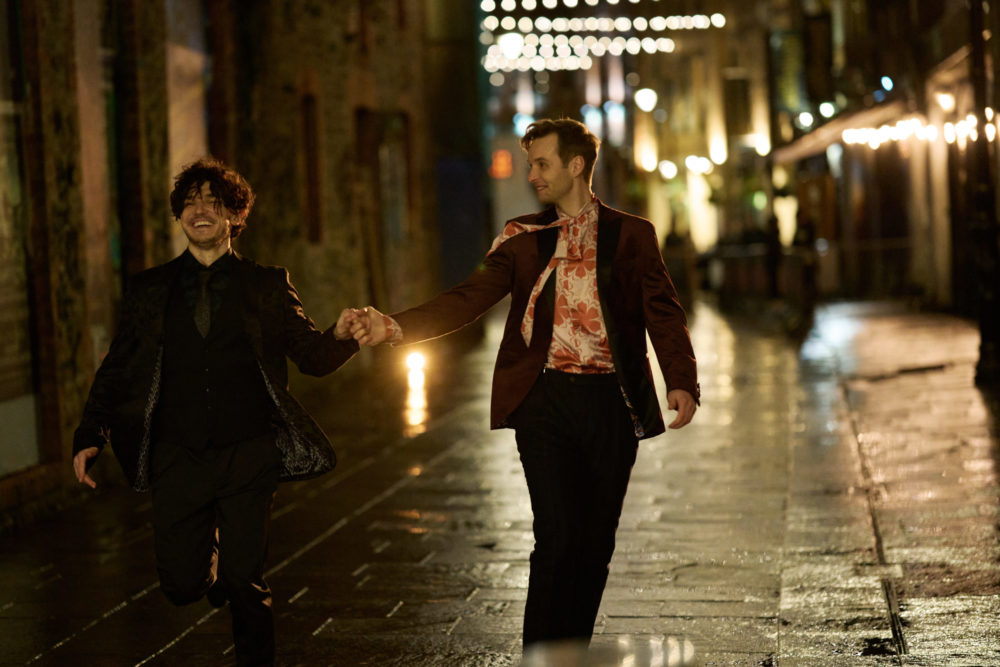
This is program in English, broadcast on BBC One, and not particularly marketed as a ‘Welsh’ drama. It’s set in Cardiff but really, you could have told mostly the same story in any other UK city without modifying it beyond recognition.
I would estimate that less than a tenth of the dialogue in the program is in Welsh—and yet, it is there. Language is a part of this story but it’s all the more radical to it because it’s not the main part of it.
Characters talk Welsh not because they’re mystics or for laughs or because it’s a story about the Welsh language but simply because it’s a story about Welsh people and, you know, that’s just what a lot of Welsh people actually do.
This is genuine representation and all the more radical because it’s so rare.
I really can’t recommend this program enough.
One can only hope that it won’t be a one-off, and that in future we will get many more programs where Welsh is finally acknowledged as a part of, to borrow Phil Bale’s term, the “social fabric”.
Where, Phil, it always has been, and very much belongs.
The author works in Equality, Diversity and Inclusion as well as the Welsh Language in the public sector. The views expressed are his own.
Support our Nation today
For the price of a cup of coffee a month you can help us create an independent, not-for-profit, national news service for the people of Wales, by the people of Wales.






Almost as if Cymru is a forgotten periphery
Not forgotten, it’s actually been very calculated. We are ignored! Not forgotten. Forgotten implies an accident. It’s anything but that.
Am ollyngdod i glywed rhywun yn gwyntyllu hyn! Erthygl wych- diolch amdani!
Because Welsh, as they call it is a link from our ancient past, and in giving someone a new identity, you must get rid of any link that proves the opposite. For the origins of the terms British don’t reside in English, they reside in the language the English call Welsh. As for being heard! Yes, that’s a definite no no, especially for Americans. The reason is to re-enforce the connections to America for England, Scotland and Ireland but alienate Wales. Americans not being aware of Wales is the most bizarre thing ever as the Welsh were effectively the initial… Read more »
Daf JAMES!
“In a way we shouldn’t be surprised to see Saes-washing even in stories about Diversity, because the Anglo-American model of Diversity & Inclusion has never really had much room or understanding for linguistic diversity. “
– exactly this!
The nail hit firmly on the head. Of all the battles for parity, equality and rights in society- the last fight will be on the linguistic battlefield, sadly.
Lots of programmes have dipped their toe in the Welsh-diversity pool by having a random Welsh character BUT that person MUST have a suitably Welsh name for the audience to understand that they are “The Welsh Person”. Apparently in Wales we don’t have people called Lucy or Tom! They have to be Eirwen or Morfydd……. except that they never check if the rest of the cast can pronounce these names before they record the programme so the actor is called a different, strangulated version every time someone speaks to them!